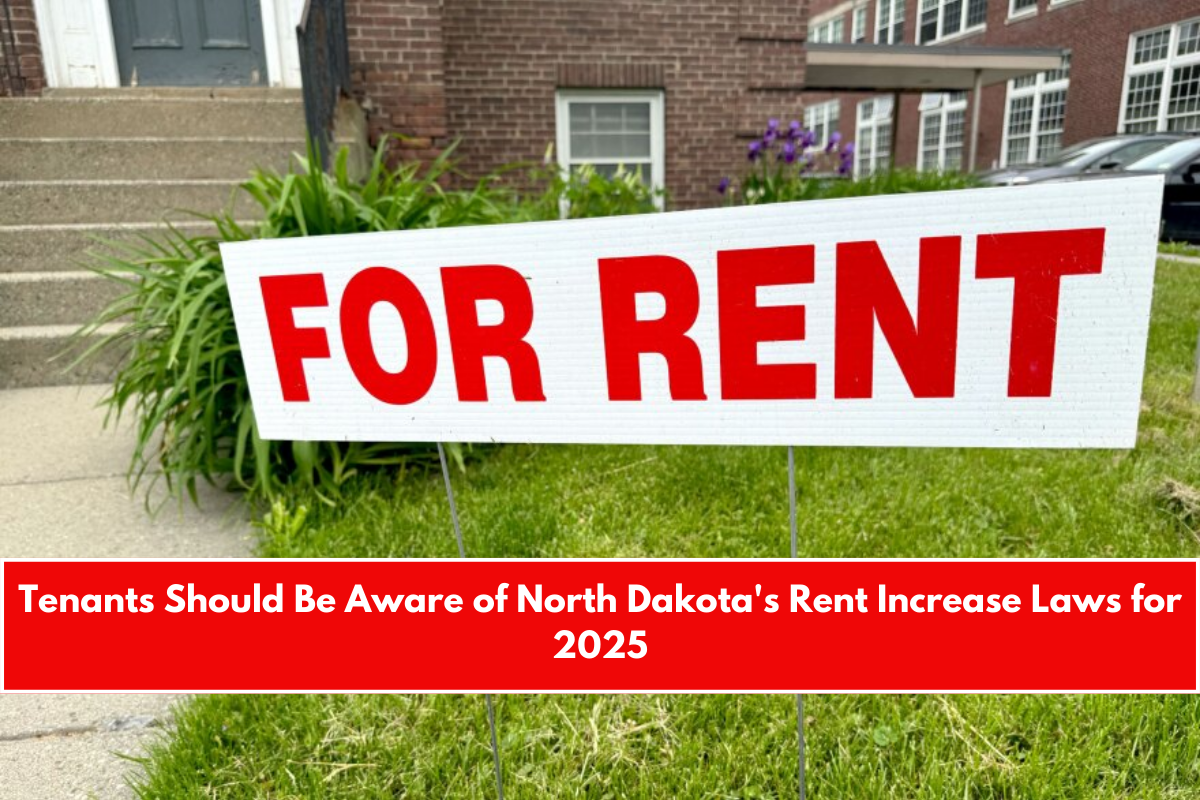North Dakota Rent Increase Laws 2025: What Tenants Need to Know
Renting a home in North Dakota in 2025 comes with certain protections for tenants, especially when it comes to rent increases. While the state does not limit how much rent can be raised, it does have clear rules about how and when landlords can increase rent.
This helps ensure that tenants have enough time to plan and respond. If you’re renting in North Dakota, this simple guide will help you understand your rights and what to expect.
Notice Requirements for Rent Increases
Landlords in North Dakota must give advance written notice before raising the rent. The length of the notice depends on the type of rental agreement you have:
If you’re renting month-to-month, your landlord must give you at least 30 days’ notice.
For week-to-week tenancies, only 7 days’ notice is needed.
If you’re living on a mobile home lot, a 90-day notice is required.
This notice period gives tenants time to decide whether they want to stay or move out after the rent increase takes effect.
Frequency of Rent Increases
In North Dakota, if you’re on a month-to-month or week-to-week lease, your landlord can only raise your rent once in a 12-month period. This rule helps prevent repeated rent hikes that can make it difficult for renters to manage their budgets.
Amount of Rent Increase
North Dakota does not have rent control laws, which means landlords can raise rent by any amount they choose. However, the amount is usually based on current market conditions, the condition of the property, and other business factors. Even though there’s no limit, tenants are still protected by notice and fairness rules.
Rules for Fixed-Term Leases
If you signed a fixed-term lease, such as a one-year lease, the rent amount is locked in for the full term. This means the landlord cannot raise the rent unless your lease specifically says they can during the lease period.
Rent increases can only happen after the lease ends, unless otherwise written in the agreement.
What to Do If You Don’t Agree with the Rent Increase
If you’re on a month-to-month lease and you get a rent increase notice that you can’t afford or don’t agree with, you have the right to end your tenancy. You must give your landlord at least 25 days’ notice before the end of the rental month.
This allows you to leave without penalty if the new rent doesn’t fit your budget.
Landlord’s Responsibility to Maintain Property
Even if rent goes up, your landlord still has a duty to keep the property safe and livable. This includes:
Maintaining heating and plumbing
Fixing structural damage
Keeping the home up to local health and safety codes
A rent increase does not allow a landlord to ignore basic repair responsibilities.
Protection from Retaliation and Discrimination
Landlords cannot raise your rent as a form of retaliation. For example, if you filed a complaint about repairs or reported code violations, your landlord cannot respond by raising the rent unfairly.
Also, rent increases cannot be used in a discriminatory way against any tenant based on race, religion, age, gender, or disability.
If you believe the rent increase is retaliatory or discriminatory, you may be able to challenge it legally.
While landlords in North Dakota have the freedom to raise rent, tenants are protected by rules that promote fairness and transparency.
From notice periods to limits on how often rent can go up, these laws help ensure tenants are treated fairly and have time to make informed decisions. Knowing your rights as a renter can help you avoid surprises and stay better prepared for any changes in your housing costs.
Understanding these key rent increase laws in North Dakota for 2025 can make a big difference in how you manage your rental situation. Whether you’re staying long-term or considering a move, being informed is your best tool for protecting your housing stability.
FAQ: Rent Increase Laws in North Dakota 2025
Is there a cap on rent increases in North Dakota?
No, North Dakota does not have rent control, so landlords can raise rent by any amount, as long as they follow notice rules.
How much notice is required for rent increases in North Dakota?
30 days for month-to-month rentals, 7 days for week-to-week, and 90 days for mobile home lot rentals.
Can a landlord raise rent during a fixed-term lease?
No, unless the lease specifically allows it. Otherwise, the rent stays the same during the lease term.
How often can a landlord raise rent in North Dakota?
Only once in a 12-month period for periodic leases like month-to-month or week-to-week.
What can tenants do if they can’t afford the rent increase?
They can choose to end the lease by giving 25 days’ notice before the rental period ends.
Can a rent increase be retaliatory?
No. Landlords cannot raise rent to punish tenants for making complaints or asserting their legal rights.


















Leave a Reply